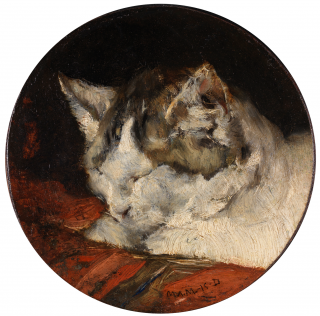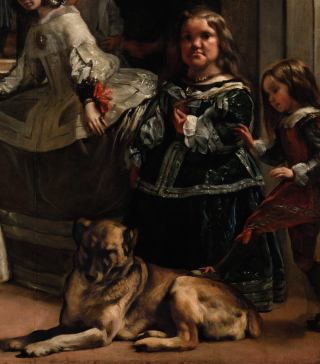Sleep
Let Sleeping Dogs Lie? When Animals Disturb Your Sleep
Insomnia caused by your pets?
Posted April 25, 2014

Farmyard in Saskatchewan. Daryl Jones.
We have all been awakened by the neighbor’s howling or barking dog, meowing cat, and chirping and singing birds starting their day. Certainly being awakened by somebody else’s pet isn’t a reason why we would ever go to a doctor. Or, would we? Over the years I have been consulted many times by people who complain about insomnia and it turned out the problem was caused by their own pet.
The first time I recall that a patient sought help because an animal interfered with sleep was when I was practicing in Manitoba, Canada. A farmer came to me to ask what can be done to readjust the circadian rhythm of his cows, because their requirements were really interfering with the amount of sleep that he got. During the summer, he would wake up at 4 a.m. to start the milking process. But in the winter, after the time change, what had been 4 a.m. became 3 a.m. He could not awaken, and when he finally started the milking process he told me that the cows were upset and this was causing a drop in his milk production. This was causing havoc with his sleep. What could be done to change the cows’ circadian rhythm? It was early in my career, I was stumped, and the only thing I could think of was to reassure him that eventually the cows would switch to his sleep/wake schedule or he could always move to Saskatchewan where they do not switch to and from Daylight Savings Time.
I have since seen many patients who had pets sleeping in their homes, rooms or their beds that kept them awake or made them sick. Here are some examples:
I have, over the years, encountered many patients with sleep problems who had severe allergies to their pets (most often cats). The patients frequently awakened at night with severe shortness of breath, wheezing, and coughing and were on large doses of very expensive medications for their asthma that had many side effects. Most often, such patients will not get rid of their pets. They were too attached to them.
I recall one patient who told me that he had six German shepherds who needed to be walked about 4 a.m., every morning and he could not get back to sleep after they all returned home.
I recently had a patient tell me that her sleep apnea was not well controlled, because she had a puppy that slept in her bed. The puppy would bite the mask and the hose of her CPAP system, making the treatment of her severe sleep apnea less effective. What I suggested to the woman was that the dog should not sleep in her bed and the hose be put away during the daytime. She became angry and asked why there wasn’t a hose available that could not be punctured. (CPAP manufacturers, are you reading this?)
There are many, many positive reasons to own pets, and having a pet may improve sleep in some people by making them feel more secure. Having the pet sleep in the bed may be soothing and the owner may find relaxation in the rhythmic breathing and warmth of the snuggling pet. A survey done by the Mayo Clinic showed that about 60 percent of pet owners have their pets sleep in their rooms, and about half of those have their pets sleep in their beds. That can be a problem. Fifty three percent of pet owners say that their sleep is disturbed by their pets. Pets snore (21 percent of dogs—especially dogs with short snouts, for example bulldogs; seven percent of cats). During REM sleep, pets may twitch, move, or even yelp or bark or make other noises.
What is obvious in dealing with sleep disrupted by pets is that solutions that may be obvious to the doctor, may be unacceptable and rejected by the patient.
We all agree that waking up a peacefully sleeping soul is not something we would ever do. Would you awaken this sleeping cat?

Cabeza de gato durmiendo. Francisco Domingo Marqués
We would all agree that waking up a sleeping soul is inconsiderate. How do you react to this fragment of Las Meninas?
Believe it or not the opposite can occur. I have encountered patients who have REM sleep behavior disorder who react to their dreams and yell and scream, awakening and startling the dog which then starts to bark, awakening the sleeping screamer. Indeed a vicious circle.
Why would we accept when a pet wakes up a sleeping soul? I can’t tell you how often I have advised patients to have their pets sleep outside of their bedrooms if their pets’ movements or noises during sleep in the patient’s bed are keeping the patient awake.

Tiny fragment from Las Meninas; Diego Velázquez.
At the end of the day the patient must make a decision. The decision is really how much is a good night of sleep worth to them, and are they willing to make an adjustment in their life or their pet’s life? As a doctor, I can only recommend what I believe is in the patient’s best interest and for me their health trumps other factors. However, I recognize that in some instances the psychological needs of the patient having to have the pet in their room or bed seems to trump their health concerns.
Patients must make their own decision about what is best for them, but that decision should be based on not simply their affection for the pet, but the importance of their sleep, and their health.
There’s the rub. The relationship of a person and their pet can be as complex as a parent and a child. Children grow up and stop disturbing their parent’s sleep (most of the time). Pets are in some ways perpetual children. However just as I recommend that parents do something when their three-year-old child disturbs their sleep, I recommend owners of pets to do something when pets disturb their sleep.
I suspect that this blog will generate a lot of commentaries both positive and negative. Let me know what your problems have been, and what solutions have worked for you.
References:


